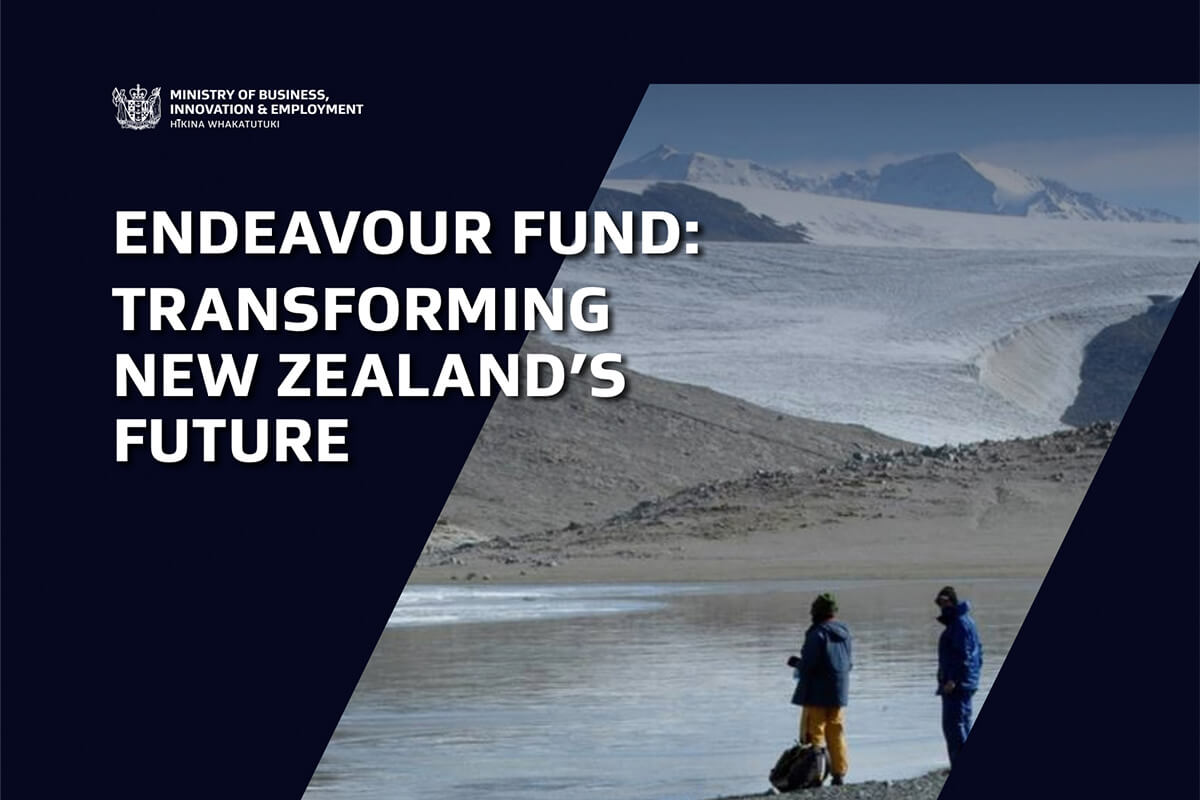HERA is excited to announce that we have been successful in the 2022 round of the prestigious Endeavour Fund and awarded a grant of close to $10.3 million to support a four-year Construction 4.0 research project.
The Endeavour Fund is part of the Ministry of Business, Innovation & Employment, and plays a unique role in the science system. It is the nation’s largest contestable funding system to select research proposals that will provide the highest potential impacts across a range of economic, environmental and societal objectives to transform the future of Aotearoa New Zealand.
In this funding round, the Science Board allocated $236.5 million to 71 projects. Among the 112 research programme proposals assessed, 45 were assessed for impact, and HERA’s proposal was one of 20 to be approved for investment.
What does HERA’s Endeavour Fund research program involve?
Our research program is focused on transforming the construction sector in Aotearoa New Zealand using Construction 4.0 approaches. Fundamentally, it will improve productivity for the construction sector more broadly, with key outcomes including better economic performance, building and infrastructure affordability, and a larger workforce which is more skilled, innovative, and digitally literate.
Our CEO Troy Coyle saying, “Our research team is both excited and thankful that the Science Board, assessors and the Minister of Research, Science and Innovation appreciate the significant contribution this project will make to the sector and New Zealand economy. This programme not only addresses key challenges identified by our members and wider industry, but will be world-leading in creating data-driven decision-making for the future of construction.”
“Currently there is a profound limitation in the way we perform construction in Aotearoa New Zealand. Complex decisions are being made based on simple data inputs and in linear silos with little inter-connection or data-derived decision support. This project will improve design to construction (and beyond) by bringing together industry and a team of global experts rigorously vetted, who will use complexity science to build upon developing nascent global Construction 4.0 knowledge.”
The Construction 4.0 framework and guidelines developed in the HERA project will focus on a series of nationwide sector-driven benefits including:
- better economic performance;
- improved productivity in the construction sector;
- building resilience and performance within environmental limits;
- building and infrastructure affordability;
- interfaces with indigenous knowledge – mātauranga Māori;
- management of complexity and reduction of uncertainty; and
- enhancement of information exchange and communication between project stakeholders to increase productivity and quality of output.
An opportunity to explore research through another lens
This funding round, it has been recognised that the Science Board has a strong focus on Vision Mātauranga and ensuring mātauranga Māori aspects are raised and upheld.
This is certainly something that aligns strongly to HERA’s own commitment in this space and we see it as an opportunity to bring a more holistic approach to the key components of the program of Industry 4.0, sustainability and mātauranga Māori.
Informed by experts in Mātauranga Māori and its interface with engineering, and by specialists in sustainability and resilience in the built environment, it makes this research unique globally and aligned to social outcomes and intergenerational wellbeing.
A core research theme will focus on technology transfer in traditional industries and policy development and implementation, to ensure that the project outcomes are readily adoptable. Add to this our linkages internationally, to industry, and to existing research programmes, we believe this will ensure project outcomes avoid redundancy and are international best practice.
HERA’s thoughts and next steps
Creating a successful bid like this required a lot of work from many people, and we are particularly thankful for those who have been integral in getting to this stage. This includes our members, our bid team and project leaders, our HERA board who have supported our drive to develop capability in industry 4.0, sustainability and Mātauranga Māori engagement, and our amazing global collaboration team.
Led by HERA, our multi-disciplinary expert research team for this programme includes the best partners we could find including:
- Data Connectivity Standardisation – Professor Xun Xu, Head of Laboratory for Industry 4.0 Smart Manufacturing Systems, University of Auckland, supported by Holger Heinzel, Fabrication 4.0 expert, and Dr. Yuqian Lu, industrial IoT and AI expert.
- Circular Design – Dr Michail Karpenko, GM of Fabrication 4.0, supported by a team including Professor Pingsha Dong, University of Michigan (USA).
- Smart Construction– Dr Alice Chang-Richards, Senior Lecturer, University of Auckland, supported by Dr Yang Zou, construction informatics and digitisation expert, and Dr. Yuqian Lu, expert in construction process automation.
- Monitoring 4.0– Professor Babak Moaveni, Department of Civil and Environmental Engineering, Tufts University (USA); and Dr. Kaveh Andisheh GM of Structural Systems, HERA, supported by Dr. Saeed Eftekhar-Azam, Assistant Professor, University of New Hampshire (USA).
- Mātauranga Māori – A/Prof Fleur Palmer, Associate Professor of Architecture and Future Environments at Auckland University of Technology, Co-Head Huri te Ao Hoahoanga. Supported by Dr. Mahonri Owen and Dr. Kris Roy at University of Waikato.
- Construction 4.0 Technology Transfer – Prof Kenneth Husted, the University of Auckland, supported by Dr Yat Ming Ooi, and Prof Jeroen van der Heijden, Chair in Regulatory Practice, School of Government, Victoria University of Wellington.
- Building a Sustainable Future – Professor Sarah McLaren, Director of NZ Life Cycle Management Centre, supported by Dr David Dowdell, Principal Scientist, BRANZ.
- Computing Technologies for Construction 4.0 – Professor Robert Amor, University of Auckland.
Moving forward, we will be focused on the start- up phase of the program and the development of the programs, contracts and advisory boards.
We hope to keep industry updated as we reach key milestones, so stay tuned for details as they arise.


